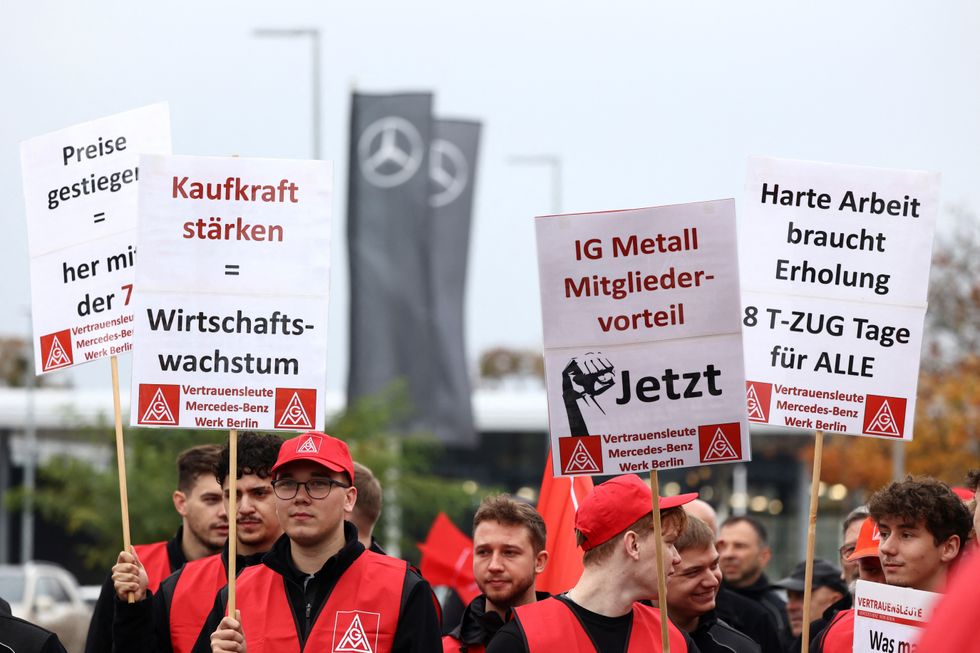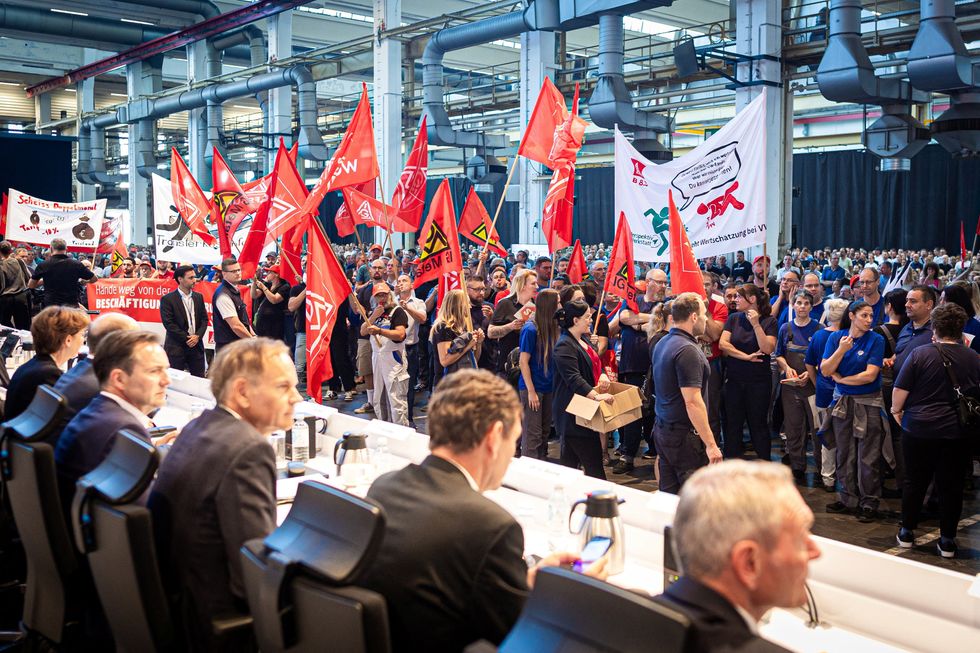A new report has warned that the transition to electric cars could contribute to the loss of 190,000 jobs by 2035 in Germany – one of Europe’s most important vehicle manufacturing bases.
According to the German Association of the Automotive Industry (VDA), the transformation of the car manufacturing sector over the next 11 years could have enormous consequences.
It highlights how the automotive industry continues to undergo a “profound” process of change with new market conditions, global growth, the move to electromobility and political uncertainty could change the sector.
The study found that transformation could cost around 190,000 German jobs by 2035, with a quarter of these having already been lost, prompting the VDA to call for policy changes.
Do you have a story you’d like to share? Get in touch by emailing[email protected]

A series of protests have taken place at automotive factories around Germany in recent weeks
REUTERS
The VDA report, in conjunction with research institute Prognos, examined the effects on employment within the automotive industry.
It stated that as a result of the drive train being electrified, overall lower employment is required for vehicle production than in the past with internal combustion engines.
Of the 10 largest occupational groups in the automotive industry, seven are among those with the largest job losses since 2019.
The study, entitled “Employment in the automotive industry”, suggests that the employment balance is negative and will “probably continue to develop negatively”.
Based on trends between 2019 and 2023, employment in the automotive industry in Germany in 2035 will be 186,000 people lower than in 2019, when only a few purely battery-electric vehicles were manufactured.
It notes that there is a “high degree of uncertainty” as to the extent of whether the trends between 2019 and 2023 will continue to be seen over the next 11 years.
Hildegard Müller, President of the VDA, said: “The transformation of our industry is a mammoth task.
“The companies in the German automotive industry and their employees are making every effort to ensure that it succeeds. There is no doubt about that.”
Between 2024 and 2028, German car manufacturers and automotive suppliers will invest around €280billion (£234billion) worldwide in research and development, with a further €130billion (£109billion) spent to convert plants.
Müller highlighted that the investments will look to boost the German car industry and make the switch to electric vehicles a success, adding: “We want the change.”
It comes at a time when the German automotive industry is in a period of difficulty with strikes across the country paired with massive losses for car brands.
Earlier this week, Volkswagen announced that it would have to shut three factories and cut thousands of jobs in response to falling revenue from its vehicles.
LATEST DEVELOPMENTS:
 Volkswagen employees at a meeting to hear about company fortunes and possible plant closuresREUTERS
Volkswagen employees at a meeting to hear about company fortunes and possible plant closuresREUTERSA statement from VW CEO Thomas Schäfer said: “We are not earning enough money with our cars currently. At the same time, our costs for energy, materials and personnel have continued to rise. This calculation cannot work in the long term.
“So we have to get to the root of the problem: we are not productive enough at our German sites and our factory costs are currently 25-50 per cent higher than we had planned.”